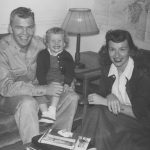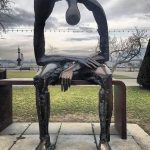My wise friend Jaime Jusidman once told me the story of a young woman with a suitor who loved her very much. The suitor came to her door clutching a bouquet of daisies to give her. “Where are my roses?” she demanded. “I want roses.” Her suitor turned and went away.
The next week he was back on her doorstep with another bunch of daisies. Upon seeing the flowers in his hand, the young woman said, “Where are my roses? I want roses.” Again the suitor turned and went away.
The following week the same thing happened. The suitor showed up at his true love’s door with a bunch of daisies. The young woman said, “ Where are my roses? I want roses.” And so again he left.
This went on for several more weeks, until finally one week, the suitor didn’t come. And he never came to her door again.
Jaime explained to me that people love us in their own ways – but sometimes we don’t recognize their love because it doesn’t show up the way we think it should. Someone offers us daisies but we keep insisting on roses. After a while, the person who loves us may stop showing up at all if we fail to recognize his love in the way he expresses it.
This parable isn’t just for lovers – it’s for anyone who wants to love and be loved. It’s true of friends; it’s true of siblings; it’s true parents and children.
I spent many years being angry and resentful with my dad for the way “he didn’t love me.” Dad’s structure and discipline felt cold and harsh. I wanted a father who doted on me. His perfectionism made him seem impossible to please, though I tried mightily. I wanted a dad who thought that everything I did was wonderful. His frugality felt unloving to me. I wanted a father who was generous. Dad kept giving me daisies and I kept looking for roses.
I am embarrassed to admit that it took me many, many years to recognize the daisies for what they were – love. Both my parents loved me very much. It’s just that their idea of how to be responsible parents was very different from what I had in mind. I wanted to be Daddy’s little princess, but instead felt like Cinderella being forced to do dirty chores, like cleaning the bathroom, washing dinner dishes, and babysitting my little brother.
Dad was careful with money because he was a child of the Depression and he knew what it was like not to have enough food. He watched expenses like a hawk because he wanted to make sure that his children would never go hungry. He saved as much money as he possibly could, in case he died young – his children would not be farmed out to cousins, as he had been when his father died young. In short, my father had learned a hard kind of love – getting bounced around from family to family, to whoever could afford to feed him. He knew that children need to be taught important lessons right from the get-go, because life is harsh and you never know if the kids might be forced to fend for themselves. Dad was a military man who fought in three wars – so there was a very real chance that his career might make his wife a widow and his children orphans.
I am very fortunate that my dad is still alive. And I’m fortunate that my friend Jaime taught me how to recognize the daisies for what they were – love in the only way Dad knew how to show it.

Most of all, I’m fortunate to have found forgiveness in my heart – forgiveness for all the ways I was hurt by my parents, and forgiveness for myself for judging them so harshly for so long. I lost a lot of quality time with my family because I couldn’t get past my resentments about the way they raised me.
I know countless people who are still nursing deep resentments toward their parents and carrying around mountains of emotional baggage from childhood. My heart goes out to them because I know how much they are still suffering – I was once one of them.
I am grateful that, through the grace of spiritual teachings and the help of some very wise friends, I was finally able to wake up and smell the daisies.
BJ’s new book, coauthored with Sam Beasley, is Your Life Is Your Prayer (Mango Publishing).



